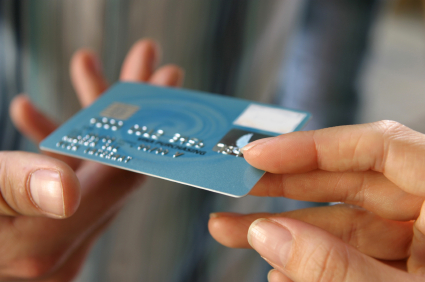
The latest study from industry consulting company IdeaWorks focuses on a particularly convoluted corner of the loyalty program landscape, travel-rewards credit cards.
Specifically, the study compares the value delivered by the co-branded cards linked to the programs of the five largest U.S. carriers (American, Delta, Southwest, United, US Airways) to the independent travel-rewards cards offered by the bank issuers (American express Blue Sky Preferred, Barclaycard Arrival World MasterCard, Chase Sapphire Preferred Visa or MasterCard, Citi ThankYou Premier Visa). Conspicuously missing from the study are significant rewards cards such as Membership Rewards-linked cards from American Express and the Venture card from Capital One.
Bank Cards, Rising
Although the co-branded cards can offer some airline-specific perks like priority boarding and fee waivers that bank cards can’t, the bank cards’ promise of restriction-free awards, on any airline, has proven to be an effective selling point with consumers who’ve lost patience with the airlines’ capacity controls.
For all the differences in earning rates, annual fees, sign-up bonuses, and so on, IdeaWorks found the bank cards’ underlying value propositions to be roughly comparable.
Consumers should not be fooled by higher accrual rates, as the four travel reward cards deliver surprisingly similar overall value. Chase Sapphire Preferred and Citi ThankYou Premier provide the usual one point per dollar charged, while Barclaycard Arrival and American Express Blue Sky Preferred provide a higher accrual rate. Barclaycard mitigates this generosity by not offering bonus accruals for select purchase categories. American Express uses lower redemption values to deliver a similar result.
There is one conspicuous point of differentiation among the four bank cards, however. Points earned with the Chase Sapphire card may be transferred to other programs, including those of InterContinental (Priority Club), British Airways, Marriott, Hyatt, Southwest, and United.
Co-Branded Cards, Losing Ground
Although the study allows that airline programs still trump the bank cards when it comes to delivering “unbeatable value for international premium class travel,” in many cases—including domestic coach awards, which account for the majority of awards issued—the bank cards offer better value than the co-branded cards.
According to the report:
Citi ThankYou Premier cardholders earn around $500 in travel credit by the time a Delta SkyMiles Gold cardholder has enough miles for a domestic low mileage reward. It’s true, the ThankYou Premier cardholder might need to pay $25 to check a bag … but that’s a smaller hurdle than finding a SkyMiles reward seat on the exact day and flight of the cardholder’s choice.
Can the co-branded cards regain their marketing mojo?
IdeaWorks thinks they can, not least because the airlines are giving away their own unsold seats, and “the program with the lowest reward cost can always win … Airlines are in a position to retrieve their dominance by reinventing their programs to provide better value for more travelers.”
In this case, better value means better award availability, for fewer frequent flyer miles.
Reader Reality Check
What’s your choice: a co-branded airline card or a bank card?
This article originally appeared on FrequentFlier.com.
We hand-pick everything we recommend and select items through testing and reviews. Some products are sent to us free of charge with no incentive to offer a favorable review. We offer our unbiased opinions and do not accept compensation to review products. All items are in stock and prices are accurate at the time of publication. If you buy something through our links, we may earn a commission.
Related
Top Fares From
Today's Top Travel Deals
Brought to you by ShermansTravel
France: 8-Night Paris, Avignon & Nice...
Infinity Worldwide Vacations
 vacation
$2880+
vacation
$2880+
Poconos: 3 Nts in Garden of...
ResortsAndLodges.com
 hotel
$305+
hotel
$305+
7-Nt Canada & New England Cruise,...
Princess Cruises
 cruise
$839+
cruise
$839+



